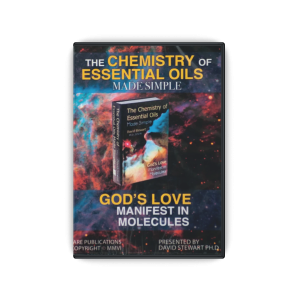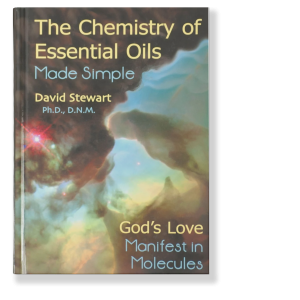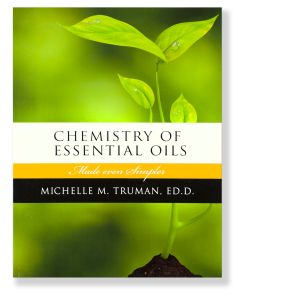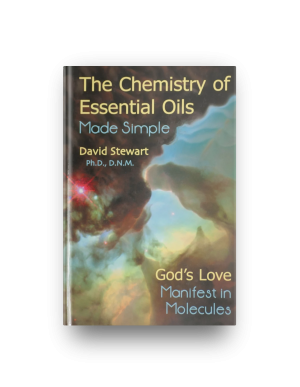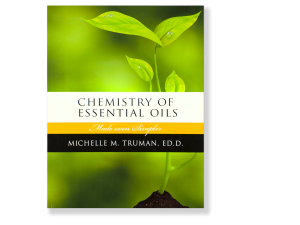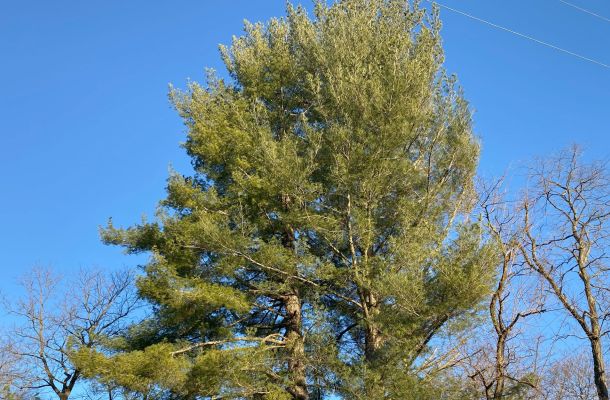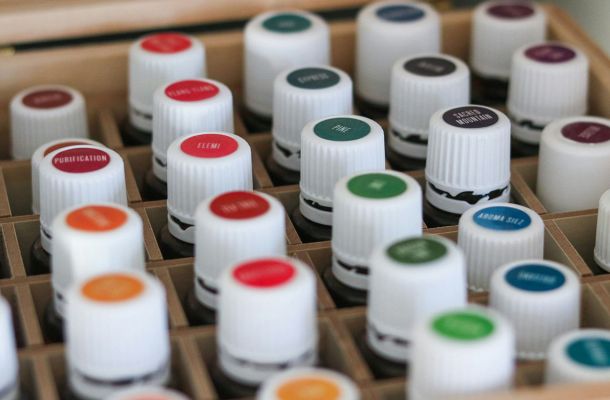The True Meaning of AFNOR – Volume 3, Number 3
Please feel free to share this newsletter!
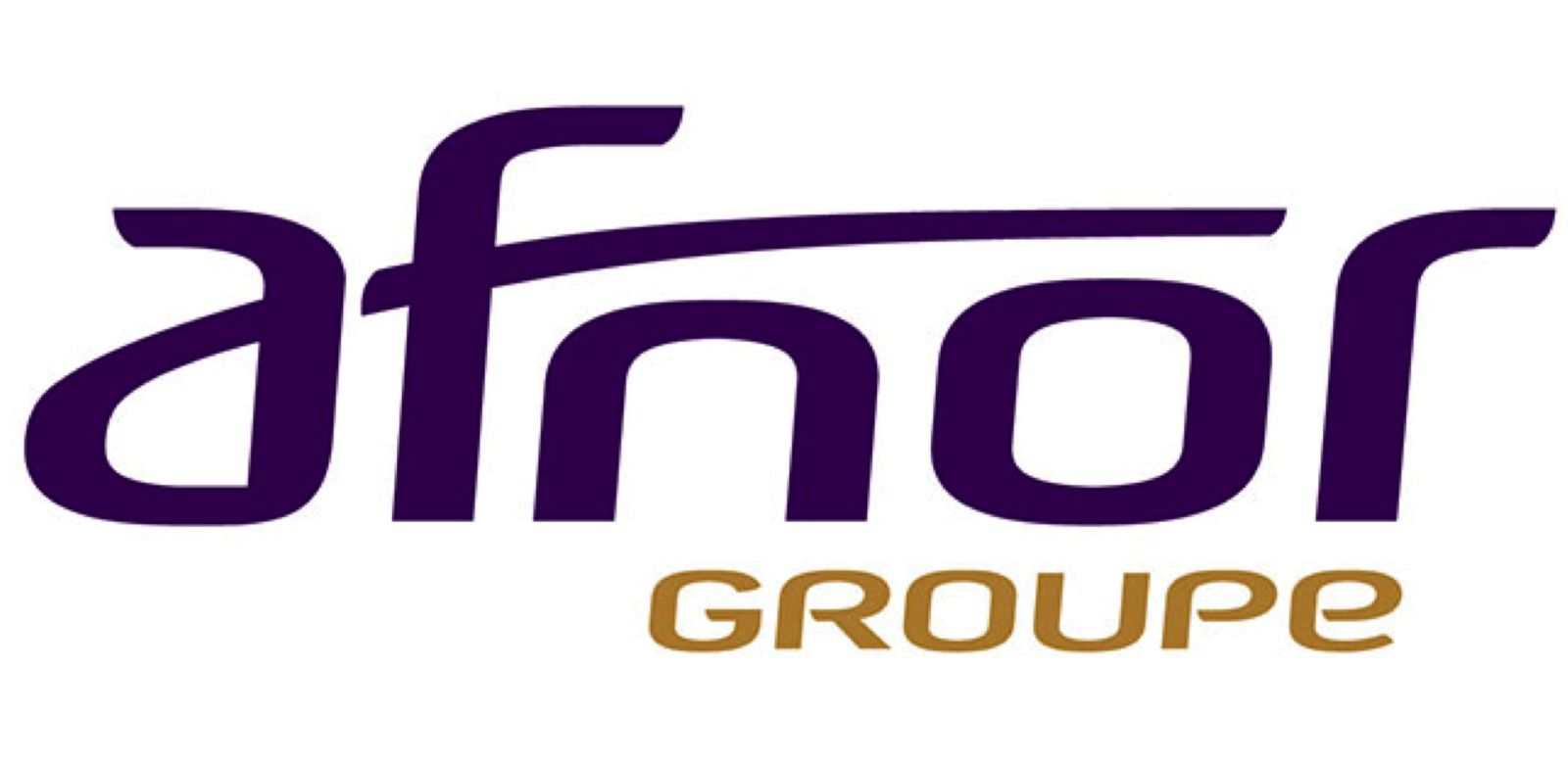
Raindrop Messenger
Official Newsletter of CARE
The Center for Aromatherapy Research and Education
12923 BCR 800, Marble Hill, Missouri USA 63764
(573) 238-4846
NOTE: The information in this newsletter is intended for education purposes only. It is not provided in order to diagnose, prescribe, or treat any disease, illness, or injured condition of the body or mind. Anyone suffering from any disease, illness, or injury should consult with a physician or other appropriate licensed health care professional.
The True Meaning of AFNOR
By David Stewart, PH.D., R.A.
Originally Posted March 2005
The acronym, AFNOR, is seen on bottles of Young Living Essential Oils and on no other brand of essential oils in North America. YLEO oils are sold as therapeutic grade. However, there seems to be some confusion as to the meaning of therapeutic grade oils and how such oils relate to AFNOR. In fact, I have been confused myself and have previously held some misconceptions on the matter. I hope that the information that follows here will clarify things for you, as it has for me. The following article has been reviewed for accuracy by personnel at AFNOR in France as well as Young Living Essential Oils in Utah.
What is AFNOR?
AFNOR (Association Francaise de Normalization) was founded in 1926 and is a French government-approved organization under the administrative supervision of the French Ministry for Industry. It has a membership of approximately 3,000 companies. Under a decree of January 26, 1984, AFNOR controls the central standardization system or the country of France. AFNOR consists of 31 standardization offices, public authorities, and 20,000 experts.
AFNOR acts as a standards-setting body for a variety of products and services. They are an agency which sets minimum standards by which quality, safety, reliability, and performance requirements described in French, European, and International Standards can be validated.
This is not the same as certification of a product or service. The act of certification designates that a recognized body, independent of the interested parties, gives written assurance that a product, process, or service conforms to specified requirements. Hence, AFNOR, itself, does not certify essential oils. AFNOR standards for essential oils are only reference documents used by professional and commercial buyers and sellers to guage their conformance to standards set and agreed upon by the participating parties. There is no official AFNOR certification for oils at this time.
The person in charge of AFNOR standards for essential oils is Bernadette Ruetsche, who reviewed and edited this article for accuracy.
The AFNOR postal address is: Association Francaise de Normalisation (AFNOR), 11 Avenue Francis de Pressense, 93571 Saint-Dennis La Plaine Cedex, France. Their phone number is 33 (0) 1-41-62-88-87. Their fax is 33 (0) 49-17-90-00. The AFNOR website is <www.afnor.fr>.
It is in both English and French.
What is ISO?
The ISO (International Organization for Standardization) is a worldwide federation of national standards bodies drawn from 130 countries. It was established in 1974. It is headquartered in Geneva, Switzerland. It is a nongovernmental body with a mission to promote worldwide standardization among the products and services of international commerce. Its aim is to facilitate the global exchange of goods and services as well as to develop scientific, technological, and economic activity among nations. AFNOR represents France as a member of the ISO.
The ISO website is <www.iso.org>. Their postal address is: International Organization for Standardization (ISO), 1, rue de Varembé, Case postale 56, CH-1211, Geneva 20, Switzerland. Their telephone is 41-22-749-01-11. Their fax is 41-22-733-34-30. They have several email addresses depending on the department you wish to contact.
These are given on their website, which is in English.
The ISO hosts 214 technical committees to set standards for a variety of products and practices. Technical Committee, TC #54, is the one designated to deal with essential oil standards, which includes not only essential oil composition, but packaging, storage, sampling methodology, and even the laboratory procedures approved for oil analyses. The ISO committee on essential oils was primarily set up for the food, fragrance, and cosmetics industries in order to insure similarity of products. There are 15 countries represented on TC #54, including the United States. The chairman of the committee is from Spain. They meet every other year.
Thus, the ISO, as well as AFNOR, sets standards for many items in a variety of areas, not just essential oils. For example, the international symbols you see on automobile dashboards, in airports, and in other public places all over the world were set by the ISO. The ISO standards for essential oils are the same as those for AFNOR.
Does AFNOR or ISO Test Oils?
AFNOR and ISO have no laboratories and do not do any testing themselves. They only set standards as agreed upon by the industries involved. An AFNOR or ISO designation on a packaging label for an essential oil does not mean it has been approved directly by AFNOR or ISO. It only means that a laboratory, independent of the interested parties, has tested the oil and found that it falls within the compositional profile designated by the AFNOR/ISO standard for that oil.
At this time, AFNOR standards for essential oils deal only with the ew chemical components of importance to the flavor and fragrance industry. AFNOR/ISO standards for essential oils deals only with the chemistry of the finished oil and not with how the oil was derived. Furthermore, it includes only the most prevalent compounds of the oil–those of interest to the perfume and food industry. It does not address the hundreds of minor and trace components of a natural oil that are necessary to its therapeutic properties. An essential oil could be devoid of most of its healing compounds and still pass AFNOR standards.
A typical AFNOR/ISO standard usually consists a statement of minimum concentrations of only the five or six compounds that provide taste and/or aroma. In some cases, there may be only one compound of interest to define the standard for a species of oil–like the menthol in peppermint (Mentha piperita). Thus, the hundreds of healing compounds that comprise a therapeutic grade of oil are not considered at all. Hence, AFNOR/ISO standards simply do not address the therapeutic aspects of an oil. An oil that tests within AFNOR parameters only means that the oil fits a certain minimum chemical profile set by the industry, which is predominantly for food and cosmetics.
What is a Therapeutic Grade Essential Oil?
According to Young Living, besides a chemical profile that includes as many of its natural ingredients as possible, what makes an essential oil therapeutic has even more to do with how it is derived. It must be grown organically (or wildcrafted), distilled at minimum pressure and temperature in vessels of non-reactive materials, and bottled unchanged, unrefined, and unadulterated. It is these latter aspects that make YLEO oils therapeutic.
An oil could fulfill all the AFNOR/ISO criteria and not be therapeutic. In fact, many commercial oils do. Unfortunately, the existence of AFNOR/ISO standards, such as they are, causes many companies, who wish to sell their oils to the food or fragrance industries, to compound, manipulate, refine, denature, and adulterate oils to make them comply with the standard. Hence, the appearance of AFNOR on a label does not prove its therapeutic quality nor does the absence of AFNOR indicate that an oil is not therapeutic.
Dr. Herve Casabianca (along with 34 other experts) is a member of the French national committee on essential oil standards. Dr. Casabianca spoke at a Young Living Convention in Salt Lake City several years ago. Dr. Casabianca represents the French National Center for Scientific Research (CNRS). He agrees with the YLEO definition of a therapeutic grade essential oil. No individual can afford to test for the hundreds of compounds in the oils they use. And even if an individual were to have an oil tested, Casabianca pointed out that commercial chemists are very clever in their schemes to fool laboratories and with a standard as minimal as AFNOR/ISO, they can usually make a synthetic or adulterated oil look natural when it is not.
Radioactive Analysis as a Test for Naturalness:
In his laboratory at CNRS, Casabianca said that they test for radon. Radon is a radioactive gas that is constantly released through the soil from the nuclear decay of minerals in the bedrocks below. A natural oil will contain traces of radon. An oil synthesized in a laboratory will not contain radon. Thus, they can sometimes identify a synthetic or manipulated oil containing only the few key ingredients to pass the AFNOR test from a natural one that would contain all the other ingredients. However, radon is not a customary element looked for in testing for AFNOR compliance because it is too expensive and most laboratories do not have the necessary apparatus.
Even so, according to Bernadette Ruetsche, speaking for AFNOR– With AFNOR/ISO standards it is possible to attest to a high degree of certainty as to the purity of oils because the AFNOR-adopted quantities of components correspond to those found in natural products. Hence, according to AFNOR authorities, if an essential oil fits AFNOR/ISO standards, it is generally considered to have
come from a natural source.
What AFNOR Does Not Include:
Testing for compositional compliance with AFNOR/ISO standards does not include testing for traces of pesticides, herbicides, or allergens. If an organic farm is next to one that uses chemicals, the wind can contaminate the soil and air of the organic farm. It is possible for a certified organic crop to contain traces of pollutants and still pass as certified organic. If an essential oil distributing company wants to be sure it oils contain no such contaminants, it would need to test specifically for them. An AFNOR designation does not address these issues.
Neither does AFNOR address the issue of high-temperature, high-pressure distillation, which destroys many of the therapeutic ingredients while preserving those of interest to perfumers and/or companies that employ flavors from oils. AFNOR also does not address the issue of petrochemical contaminants in oils extracted by strong solvents.
Dr. Casabianca concluded that in the end, no matter how much you analyze an oil in a laboratory, based on the analysis alone, you cannot always be sure whether it is completely natural and therapeutic or not. To test every oil sample to a certainty would be economically prohibitive. You can determine if it fulfills AFNOR/ISO standards by simple laboratory techniques, available and possible throughout France and in most countries worldwide, but such a test will not ascertain that an oil has healing properties.
Casabianca said the best measure is to know your grower, know your distiller, know your bottler, and know your distributor. It is a matter of trust, he said. He said that YLEO is the only North American company that routinely ends samples of its oils to France for testing against AFNOR/ISO standards and that he has always been impressed with the high quality of oils sent by YLEO.
Summary of Key Points:
- There is no nationally or internationally recognized agency that sets standards for therapeutic grade essential oils. Neither AFNOR, ISO, CODEX, or any other agency does that.
- Therapeutic grade has not only to with the chemical composition of the oil, but also with its origin–how and where grown, how distilled, as well as how packaged and distributed. AFNOR and ISO do not consider these factors, which are crucial in the determination and maintenance of therapeutic grade properties.
So What’s an Essential Oiler to Do?
With respect to any particular oil or brand of oils, the question you need to ask is this: Do you obtain therapeutic results with that brand of essential oils or not? The proof is in the healing that results-a factor anyone can experience, observe, recognize, and document for themselves. No laboratory test is needed for that. This is anyone’s prerogative, and it is available to you at no cost.
As for YLEO oils, those of us who use them know of their authentic healing power first hand. We have seen it and we have experienced it repeatedly. We don’t need AFNOR, ISO, or any other test for that.
So, are Young Living oils therapeutic grade? You can answer this for yourself. I know they are, not because they are designated as AFNOR, but because I have seen and experienced their healing power over and over again. I need no other proof. Your personal experience is more valid than any lab test, however scientific.
A USP/NF Postscript:
Until recently, there were no American standards for essential oils. Young living scientists are currently working with the United States Pharmacopeia and National Formulary ( USP/NF) which are American standard setting organizations that have been around for more than a century. As recently as one year ago USP/NF had virtually remained uninvolved in establishing standards for essential oils. That is now rapidly changing as of the Spring 2005 Pharmacopeial Forum. Standards for essential oils are now being established by the joint efforts of various industries (including pharmaceutical), various government groups (including the FDA), as well as university scientists and consultants who know what standards for therapeutic grade oils should be–including authorities from Young Living.
USP/NF standards go beyond AFNOR/ISO in that the latter concern themselves only with a chemical profile in the finished oil while USP/NF also specifies the manner in which the herbs are grown,
cultivated, and harvested, as well as how the oils are distilled, extracted, bottled, and labeled.
In other words, if things work out they way they should, an essential oil that qualifies to be designated as a USP/NF grade oil will not only fit a minimum chemical profile (like AFNOR/ISO), but will also fit the
definition of a therapeutic grade oil, as defined by YLEO. Hence, at some time in the future, we can expect to see aromatic oils that carry the designation of USP/NF on their labels which will have valid meaning in defining a therapeutic grade oil, whereas AFNOR does not.
We will write more on this in future newsletters as things develop.
WHAT READERS SAY ABOUT THIS BOOK


An excellent book! Informative for the novice yet advanced for the professional as well. Well-written and easy to read because of Dr. Stewart’s down-to-earth visual explanations. Far from a dry chemistry book. Just reading the Table of Contents makes you want to dive right into the book.
Barbara Vissers

Phenomenal! This book hardly deserves to be deemed a dry category of chemistry! Dr. Stewart makes, what is for many people a boring subject, something alive and full of interest. For the first time, I understand how chemistry and vibrational frequency relate. He has done a great service for those of us in healing work and in the art of aromatherapy. The book is truly a treasure for those with or without a scientific background.
Linda L. Smith

This is a much needed book. There is no other publication like it. David has done a marvelous job in presenting the chemistry of essential oils in a clear, readable, and enjoyable way for everyone. A good scientific work. Lots of good data. I recommend this book to everyone who uses therapeutic oils and wants to understand how and why they work.
Terry Friedmann

What a pleasure to read your new book. It is so enlightening. I thought your classes were great, but i must say that your book has really given me a deeper and fuller understanding of the chemistry of the oils in a way that is both useful in my practice and also for all people that are searching for answers to how these oils work and why they work so well. Your book is easy reading and the content perfect for myself inasmuch as I have no background in chemistry. I intend to keep it with the rest of my most important reference books.
Barbara Newton

As a nurse for almost 30 years, Dr. Stewart’s book has finally given me “scientific permission” to follow the “whispers of God” in my heart. I’ve always felt led in the care of the patients God has brought to me, but I often yielded to what medicine mandates instead of honoring God’s leadings. Dr. Stewart reminds each of us to listen and be inspired by God’s handiwork. This is a historical work!. I congratulate you and thank you, Dr. Stewart.
Fran Norton

We are delighted to recommend this book. It is the first to address positively the dilemma over supposedly toxic oils as well as the undoubtedly beneficial use of certain oils neat for certain conditions. It is refreshing to find someone else who feels our wonderful essential oils are unnecessarily maligned when all that is needed is more knowledge on the chemistry, which this book provides. The book also rightly explains how tests done on animals with single components or perfume quality oils cannot be related to the use of genuine essential oils on people.

This book is fabulous. It’s brilliant. An invaluable resource to any student studying essential oils. Your knowledge and very honest views of the use of essential oils are excellent, tactfully described, and yet humorous to read. The information is really superb. I am adding this to my list of recommended books for my students as an absolute must.
Susan Duerden Neary

A truly inspired work of art. A blending of the spiritual and scientific wonders of the gift of essential oils on this planet. This book opens up a whole new world of intrigue with fascinating presentations that lead to an understanding of how and why oils work in sync with our physical, emotional, and spiritual bodies. Dr. Stewart creatively weaves in stories which are so valuable for insight, clarification, and making this a wonderfully flowing story of God’s blessings. This book also has the best and clearest explanations I have ever found of pH, allergies, and other health-related topics. This is definitely the chemistry of essential oils made simple . . . as well as profound!
Connie Adams

What a wonderful reference!! A must read for any one wanting to understand the chemistry of therapeutic essential oils and how they can be of value to mankind.A great source for both the layman and the professional alike. David has made the science and chemistry of essential oils easy to understand. This is one book I want in my library.
Joanne Schwarm

This book was so enlightening to me. I thought your classes were great, but your book has really given me a deeper and fuller understanding in a way that is both useful in my practice and also for all people searching for answers to how these oils work and why they work so well. Your book is easy reading and the content perfect for myself as I have no background in chemistry. I will keep it with the rest of my most important reference books.
Barbara Newton

Your chemistry book is fabulous and will be a best-seller. I love the humor, simplicity, depth of knowledge, and the way you have brought science and religion together, as it should be. This is a book I definitely want to carry here at my center. It will help the lay person, as well as the scientist, to understand the profound healing effects of essential oils within the human body and how to use that information to both select oils and to prayerfully decide a course of action to facilitate healing. Thank you so much for taking the time to write this book!
Vicki Opfer

I have just finished reading your chemistry book twice!!! I love it! You are amazing! I am wowed, enriched, and pleasantly surprised at the humor, love and simplicity of Chemistry explained by your Divine teaching. Thank you for sharing your precious gift with us!!!
Katrina Harrison

In his book, on The Chemistry of Essential Oils, Dr. David Stewart has, to my knowledge, gone where no author has ever gone before. He explains the complex organic chemistries, as well as some practical uses, of these natural plant-distilled oils so that anyone with a high-school education can comprehend them. And he has presented the material in a wonderfully engaging way, undergirded by a devout Scriptural perspective as well! Readers will find in this volume a fresh, challenging, and complementary alternative point of view for the practice of medicine and the healing arts, which no doubt will stimulate some beneficial and much needed debate. I believe Dr. Stewart is on the “cutting edge” of a gentle revolution in American healthcare.
Robert W. Miner

It is often said the best way to make a contribution to society is to discover a need and fill it. Dr. David Stewart has done just that by offering technical, scientific, and what could have been very challenging information in a simplified, interesting, easy-to-understand manner. For thousands of us who use, work with, and educate about therapeutic-grade essential oils, this is the piece we have needed to better understand how to choose our oils wisely for the most effective results. It affords us the opportunity to become more professional in our craft. Dr. Stewart is a rare individual who possesses the skill to combine his left-brain knowledge and expertise with a compassionate heart and a desire to bring his vast storehouse of information to the lay person in clear, understandable terms. This book is an amazing blend of the factual and the spiritual, woven together with David’s magical touch, which has produced a brilliant piece of work. This is an invaluable resource, and will take a prominent place in my library.
Joy Linsley

Man has nothing to offer for the extremes of pain and disease but to put one to sleep—numb to reality. God offers everything to awaken and give life. David Stewart has expressed this well in molecular terms.
Lois Loyek

He’s done it again! Dr. Stewart’s new book proves once again that nature is truly a testimony to God—even at the scale of atoms and electrons. Even a child can see why chemistry makes sense when described in terms of the Creator. If chemistry could have been this clear when I went to school, it would actually have been fun. The awesome order of God’s creation on a molecular level helps me appreciate His providence more than ever before. A treasury of scientific detail in common language that gives expanded meaning to God’s provisions for his children. This book fills an important need not met by any other publication.
Rev. Dennis Peterson

A beautiful book. A musical chemistry book. Flows like music. A symphony in words.
Marianne Morris

With a kiss of the Divine with nature, Dr. Stewart has created another masterpiece! He has brilliantly woven his artistry to bring the Spiritually etheric oils into the Scientific realm for our understanding of nature’s physicality and purpose. In this informative, practical and down-to-earth book, Dr. Stewart takes the reader on a chemical journey from the infinitesimally small structure of a molecule to the Infinite Cosmos revealing God’s signature in all of creation. God’s love has also manifested through Dr. Stewart’s dedication in his written words. This is a magnificent must read book for anyone using essential oils.
Sabina M. DeVita

Although I had made numerous attempts to study the chemistry of essential oils over the years, it wasn’t until I read Essential Oil Chemistry Made Easy, by Dr. David Stewart, that I was able to achieve breakthroughs in my understanding with such ease. I encourage you to gaze in childlike delight while David gently lays his hand on your shoulder and focuses the lens as you read. Take a closer look, and learn more of our Creator, His love and care for you, through the intricate design He has placed in these precious, treasured gifts of essential oils. “To get understanding is to be chosen above silver.” Proverbs 16:16b
Kathy Spohn

In this information-packed book, Dr. Stewart, a truly gifted writer and teacher takes us step-by-step from the basic building blocks of the physical universe to an understanding of how essential oils fit into the Divine Plan. This wonderful new book transcends the compartmentalizm of modern science and religion, lifting us into a refreshing space where reality becomes a reverent understanding of God’s magnificent creation.
Edward R. Close

I love reading your chemistry book. Your introduction even made me cry. Your heart is so pure and wonderful, it so shines in your book. It is so evident that you LOVE what your writing about, that it makes reading the book so much fun! I’ve read the first 60 pages, and I’m excited about the rest of the book
Larkin Busby
THE RAINDROP MESSENGER
Official Newsletter of CARE
The Center for Aromatherapy Research and Education
12923 BCR 800, Marble Hill, Missouri USA 63764
(573) 238-4846
NOTE: The information in this newsletter is intended for education purposes only. It is not provided in order to diagnose, prescribe, or treat any disease, illness, or injured condition of the body or mind. Anyone suffering from any disease, illness, or injury should consult with a physician or other appropriate licensed health care professional.
The Care Calendar
CARE Summit 2025!
Topics covered in the Raindrop Messenger:
- 10 Reasons to Learn Raindrop
- 3 Day Intensive
- Acid Reflux
- Advanced Bible Oils
- AFNOR
- Allergy Season
- Allopathy
- ALOES/SANDALWOOD
- Ancient secrets of essential oils
- Annual CCI Summit
- Anointing
- Aroma Life
- Aromatherapist
- Aromatherapy
- Aromatherapy Certification
- Arthritis
- Believer
- BIBLE OILS
- Biblical Oils
- Birch Oil
- Black Widow
- Blue Chamomile
- Blue Spruce
- Body Systems
- cancer
- CARE Chemistry
- CARE Classes
- CARE INTENSIVES
- CARE Seminars
- CARE Summit 2024!
- CARE Summit 2025
- CARE training
- Carvacrol
- CCI Certification
- CCI Summit
- CCI Summit 2024
- CEDARWOOD
- Center for Aromatherapy Research and Education
- Chakras
- Charging for Raindrop
- Chemistry
- Chemistry of Essential Oils
- Chemistry of Essential Oils Made Simple
- Chemotypes
- cleanses
- Clover
- Connection
- Continuing Education Credit
- CYPRESS
- Dangers Of Prescription Drugs
- Detoxifiers
- Developing Gratitude
- DI GIZE
- DIAMOND
- Do All You Can
- Earthquakes
- Education
- Elderberry
- ELECTROMAGNETIC FIELD
- EM FIELD
- Emotional Release
- Energize
- ENZYMES
- Essential Oils
- ESSENTIAL OILS FOR INTUITIVE PURPOSES
- Essiac tea
- Exodus Supplement
- Feelings Kit
- Flu
- Focus
- Frankincense
- FREQUENCES
- Full CARE Intensive: Raindrop
- GALBANUM
- Garlic
- Gary Young
- German Chamomile
- Ginger
- Goals
- god's love
- Gold
- Gold Frankincense Myrrh
- Grand Fir
- Grapefruit
- Growth
- Habits
- Harmonies Melodies & Symphonies with Essential Oils
- Heal Your Body
- Healing
- Healing Oils Of The Bible
- Helichrysum
- HERXING
- History of Anointing Oils
- Holy Anointing Oil
- Holy Incense
- Homeopathy
- Homeostatic Intelligence
- HYSSOP
- IASP
- Institute for Energy Wellness Studies
- Integrated Aromatic Science Practitioner
- Joy
- Juniper
- laughter
- Lavender
- Learn Raindrop
- Lee Stewart
- Legal
- lemongrass
- linen
- Liver
- Look Ahead.
- Lora Lee
- Love
- Lyme Disease
- Mind-Body Connection
- Mint
- Myrrh
- Myrtle Oil
- NAT
- Natural
- Natural Molecules
- Neuro-Auricular Technique
- never give up
- new age
- Ningxia
- Ningxia Red
- Non-Nutritive
- Nova Vita
- Ocotea Oil
- Oils of ancient scripture
- Onycha
- ORAC SCALE
- Oregano
- Oregano oil
- Overcoming Diabetes
- patchouly
- Peruvian Chocolate
- Pest Control
- pheromones
- phosphoric acid
- Photoxicity
- Pine
- POO-ROMATHERAPY
- Practitioner
- Preparation
- Protocel
- Pure Therapeutic Grade Essential Oil
- Quantum Physics
- Raindrop
- Raindrop certification
- Raindrop Classes
- Raindrop instructors
- Raindrop teachers
- Raindrop Technique
- Raindrop Technique Training
- Raindrop Training
- Raindrop Without a License
- RC Blend
- Relationship
- ringing in the ears
- Rose Essential Oil
- ROSE OF SHARON/CISTUS
- Rose Oil
- Safe Insect Repellants
- scar-b-gone
- Science Of Essential Oils Made Simple
- Sensitivities to Essential Oils
- sick building syndrome
- SPIKENARD
- Stay Positive
- staying healthy
- Success
- Supervisor Training
- Synthetic Compounds
- tansy
- Tea Tree
- The Blood Brain Barrier
- the Ecuador Clinic
- THE FIRST IMPRESSION TECHNIQUE
- the Mind-Body Connection
- THE PRAYER OF JABEZ
- The Quantum Connection
- THE SLEEP TECHNIQUE
- Therapeutic Grade
- Thieves Household Cleaner
- Thieves Oil
- Thyme
- Thyme Oil
- Tinnitus
- Tonya Peterson
- Transformation
- Transformation Oil Blend
- Twelve Questions to Ask Those Who Invite You to Join Another Company
- unresolved emotions
- valor blend
- Vitaflex
- water
- Wealth and Spirituality
- Wintergreen
- Wolfberries
- Ylang Ylang
- YLEO
- Young Living business
- Young Living Essential Oils
- Young Living Oils and Products
